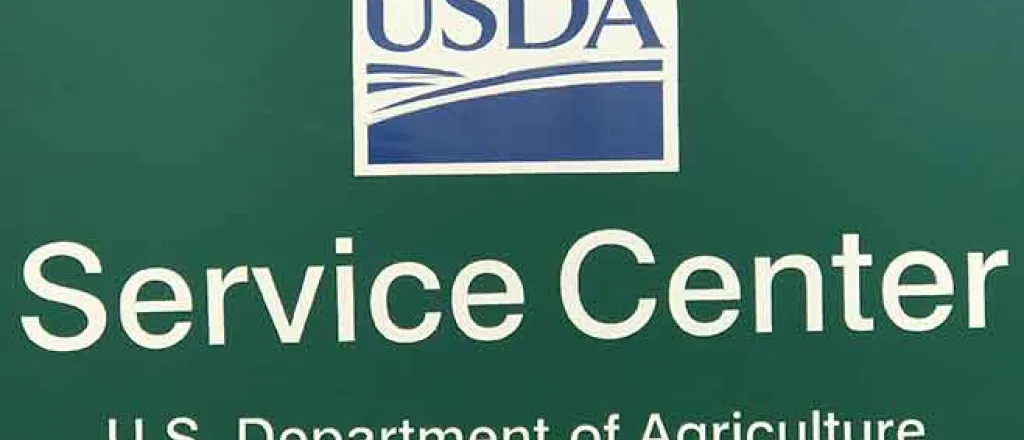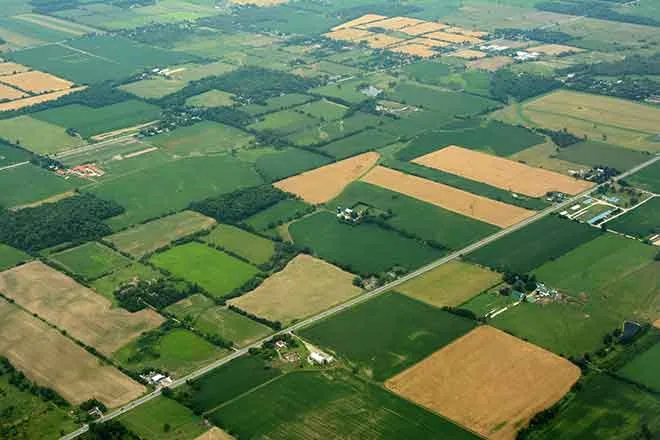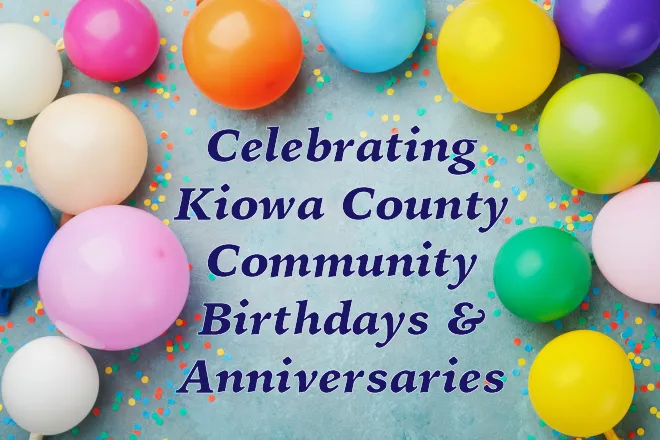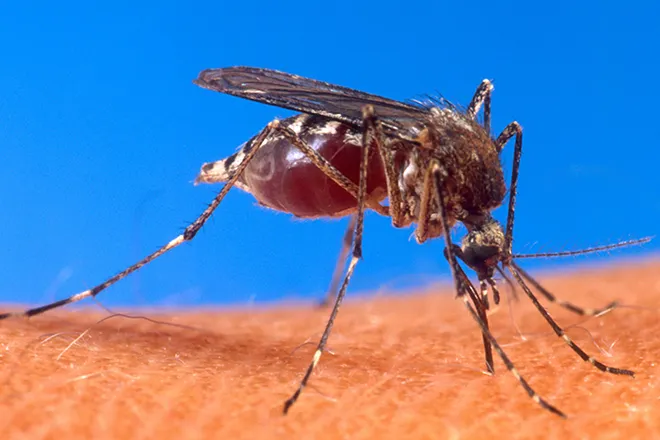
USDA Update – August 7, 2023
IMPORTANT DATES TO REMEMBER
- 2023 LIVESTOCK FORAGE PROGRAM or LFP – Kiowa County eligible – deadline to apply January 30, 2024.
- NRCS – CSP deadline August 18, 2023
- CRP Non-Emergency Haying and Grazing Available (excluding CRP Grassland contracts)
Disclaimer: Information in this UPDATE is pertinent to Kiowa County FSA only. Producers reading this and that do not have FSA interest in Kiowa County are advised to contact their local FSA Office.
THE USDA SERVICE CENTER HAS A DROP BOX AVAILABLE ON THE EAST SIDE OF THE BUILDING.
USDA is an equal opportunity provider, employer, and lender.
CRP Sampling for Carbon MAE Study
Sampling is currently underway for the Soil Carbon MAE study. Sampling groups maybe in your area sampling. Please work with these sampling teams and your CRP participants to make this sampling a success. FSA is part of the national inventory that is taking place on measuring soil carbon sequestration and greenhouse gas benefits from agriculture. This information will be used to explained what part CRP plays in climate benefits.
USDA FPAC awarded funding to three entities—Ducks Unlimited, Michigan State University, and Mississippi State University to conduct soil carbon research on land enrolled in the Conservation Reserve Program. Funding for this research is provided through the Monitoring, Assessment and Evaluation (MAE) program. The project involves monitoring soil carbon and greenhouse gases over multiple years on CRP enrollments across a range of stand ages, practices, plant diversity and agronomic contexts. The objective of this study is to collect and use soil carbon, wetlands, perennial grasses, and tree stand data from CRP-enrolled fields to estimate the relationship between soil carbon and greenhouse gasses with the quality of the cover. The information collected in this study will better inform the national greenhouse gas inventory data that is used in climate models such as DayCent and COMET.
A cooperative agreement with the project teams is in place and allows data sharing between the teams and the county offices. Producer’s data will be kept strictly confidential and used for analytical purposes only. Mississippi State University researchers lead by Austin Himes will be collecting soil samples, tree samples, and data from CRP Tree Practices. Ducks Unlimited, Inc. researchers led by Ellen Herbert will be collecting soil samples, wetland samples, and additional data from CRP wetland practices. Michigan State University researchers lead by Bruno Basso will be collecting soil samples, vegetation samples, and data from CRP Perennial Grass Practices and Grassland CRP program. On chosen CRP sites, researchers will be collecting three feet soil cores, taking grass and tree samples, and installing sensors to help them better understand the growth of trees, vegetation, and the dynamics of carbon and greenhouse gasses in these systems. Researchers may also want more information from participants on past management of the land before the land was enrolled in CRP. This management data is necessary to bolster the greenhouse gas inventory models such as DayCent and COMET. Research teams may need to visit multiple times but will do their best to coordinate these visits with county offices and the producers to let them know when they plan to be on the property. Teams have been trained to avoid any trampling or other damage to surrounding crop or conservation lands and have been trained to minimize any impacts on the CRP site themselves. Regardless, the sampling will not affect program compliance in any way.
Before You Break Out New Ground, Ensure Your Farm Meets Conservation Compliance
The term “sodbusting” is used to identify the conversion of land from native vegetation to commodity crop production after December 23, 1985. As part of the conservation provisions of the Food Security Act of 1985, if you’re proposing to produce agricultural commodities (crops that require annual tillage including one pass planting operations and sugar cane) on land that has been determined highly erodible and that has no crop history prior to December 23, 1985, that land must be farmed in accordance with a conservation plan or system that ensures no substantial increase in soil erosion.
Eligibility for many USDA programs requires compliance with a conservation plan or system on highly erodible land (HEL) used for the production of agricultural commodities. This includes Farm Service Agency (FSA) loan, disaster assistance, safety net, price support, and conservation programs; Natural Resources Conservation Service (NRCS) conservation programs; and Risk Management Agency (RMA) Federal crop insurance.
Before you clear or prepare areas not presently under production for crops that require annual tillage, you are required to file Form AD-1026 “Highly Erodible Land Conservation and Wetland Conservation Certification,” with FSA indicating the area to be brought into production. The notification will be referred to NRCS to determine if the field is considered highly erodible land. If the field is considered HEL, you are required to implement a conservation plan or system that limits the erosion to the tolerable soil loss (T) for the predominant HEL soil on those fields.
In addition, prior to removing trees or conducting any other land manipulations that may affect wetlands, remember to update form AD-1026, to ensure you remain in compliance with the wetland conservation provisions.
Prior to purchasing or renting new cropland acres, it is recommended that you check with your local USDA Service Center to ensure your activities will be in compliance with the highly erodible land and wetland conservation provisions.
For additional information on highly erodible land conservation and wetland conservation compliance, contact your local USDA Service Center.
KIOWA COUNTY FARM SERVICE AGENCY COUNTY COMMITTEE
- Sean Harkness – LAA 1 – East area – Committee Chairperson
- Destiny Haase - LAA 2 – Central area – Committee Vice-Chairperson
- Michael Zimmerman – LAA 3 – West area – Committee Regular Member
USDA SERVICE CENTER CONTACT INFORMATION
409 E Lowell Ave.
PO Box 188 – Eads, CO 81036
Telephone 719-438-5851 FSA (Ext 2), NRCS (Ext 3). FSA Fax number: fax2mail 844-332-7501
FSA - Farm Service Agency
- Dawna Weirich – CED dawna.weirich@usda.gov
- Charla Ferris – PT charla.ferris@usda.gov
- Brandi Nevius – PT brandi.nevius@usda.gov
- Teri Ellis – PT teri.ellis@usda.gov
NRCS – Natural Resource Conservation Service
- Scott Smith – Resource Team Leader 719-767-5648 ext. 3 scott.smith3@usda.gov - Cheyenne Wells
- Steve Schmidt – steven.schmidt2@usda.gov Eads Office
- Marty Miller - marlin.miller@usda.gov Eads Office
KIOWA COUNTY FARM LOAN CONTACT INFO – CALL FOR AN APPOINTMENT
Telephone 719-336-3437 (ext. 2)
Mary Rhoades, mary.rhoades@usda.gov,
Nicole Lubbers, nicole.lubbers@usda.gov
SERVICE CENTER OFFICE HOURS:
Monday through Friday - 8:00 a.m. to 4:30 p.m.
RECEIVE USDA INFORMATION
Visit website www.Farmers.gov for up-to-date information for FSA/NRCS programs.
Receive text messages - Text COKiowa to FSANow (372-669) to subscribe.
Not currently available in Colorado.
Subscribe to GovDelivery emails: Visit www.fsa.usda.gov/subscribe or contact your local FSA Office.
For information on programs visit our website located at www.fsa.usda.gov or like us on Facebook or follow us on Twitter. USDA is an equal opportunity employer.
















